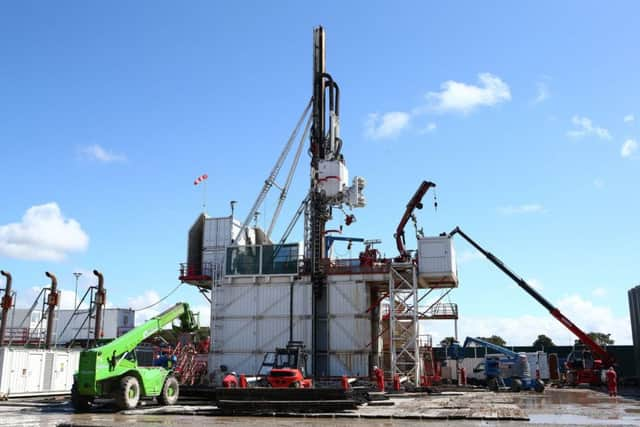YP Letters: Changing energy landscape shows no need for UK fracking
WHEN fracking in the UK was first advocated, it was believed that the country could be held hostage to rising energy prices with North Sea gas production falling. Six years later things are very different.
New sources of gas from the US and central Asia have become available, gas prices have halved and there is no shortage of supplies in Europe or across the world.
Advertisement
Hide AdAdvertisement
Hide AdEuropean demand for gas has also proved much lower than predicted.


In addition, over the last five years the cost of energy from solar and wind power has halved, and this diversity protects our energy security.
Shale gas in the US can be cheaply extracted from vast reservoirs such as the Marcellus field and the Permian Basin. However, the geology of Britain is very different and shale fields are small and scattered, making fracking much less productive and more expensive.
The capital expenditure required even to begin drilling operations, together with the much lower likelihood of success, makes fracking in Britain barely economically viable – especially when it has to compete with falling energy prices. Yet, despite these hard facts and against the will of local communities, the Government remains in the pocket of the fracking industry.
Advertisement
Hide AdAdvertisement
Hide AdManchester has joined London, Leeds, Wakefield, Hull and York in opposing fracking. Scotland and Wales already have moratoriums in place.
Please tell your local MP that we are supposed to be living in a democracy and we don’t want to be the guinea-pig victims of a gamble that could well backfire.
From: Coun Tim Mickleburgh (Lab), Boulevard Avenue, Grimsby.
IAN Wilson (The Yorkshire Post, January 7) speaks a lot of sense. We have millions of tonnes of coal under our feet which are not being utilised. We could develop this valuable natural resource ourselves, and not be at the mercy of other countries.
Advertisement
Hide AdAdvertisement
Hide AdI’m not denying there is an environmental argument. But I’m sure that scientists could, if the will, was there make coal less of a pollutant than it used to be. Remember that in the 1980s and before there was a desire to run down coal, partly to destroy the National Union of Mineworkers. So there was no incentive to develop the product back then.
Using our own coal means less importing of energy, with all its environmental costs.
The same applies to other countries with their home-grown mining industries.